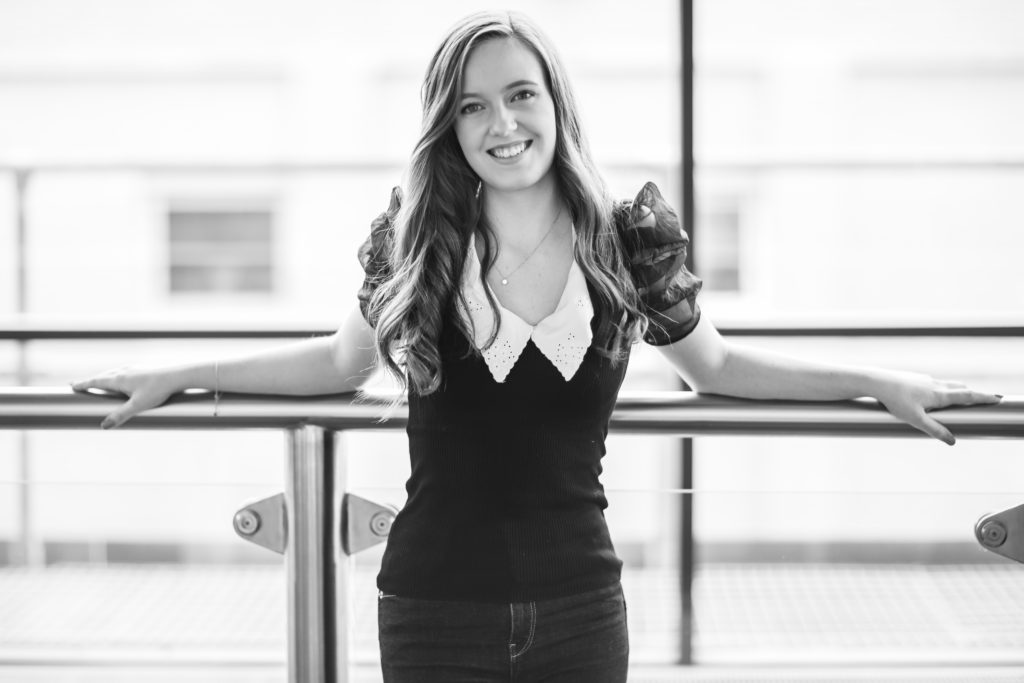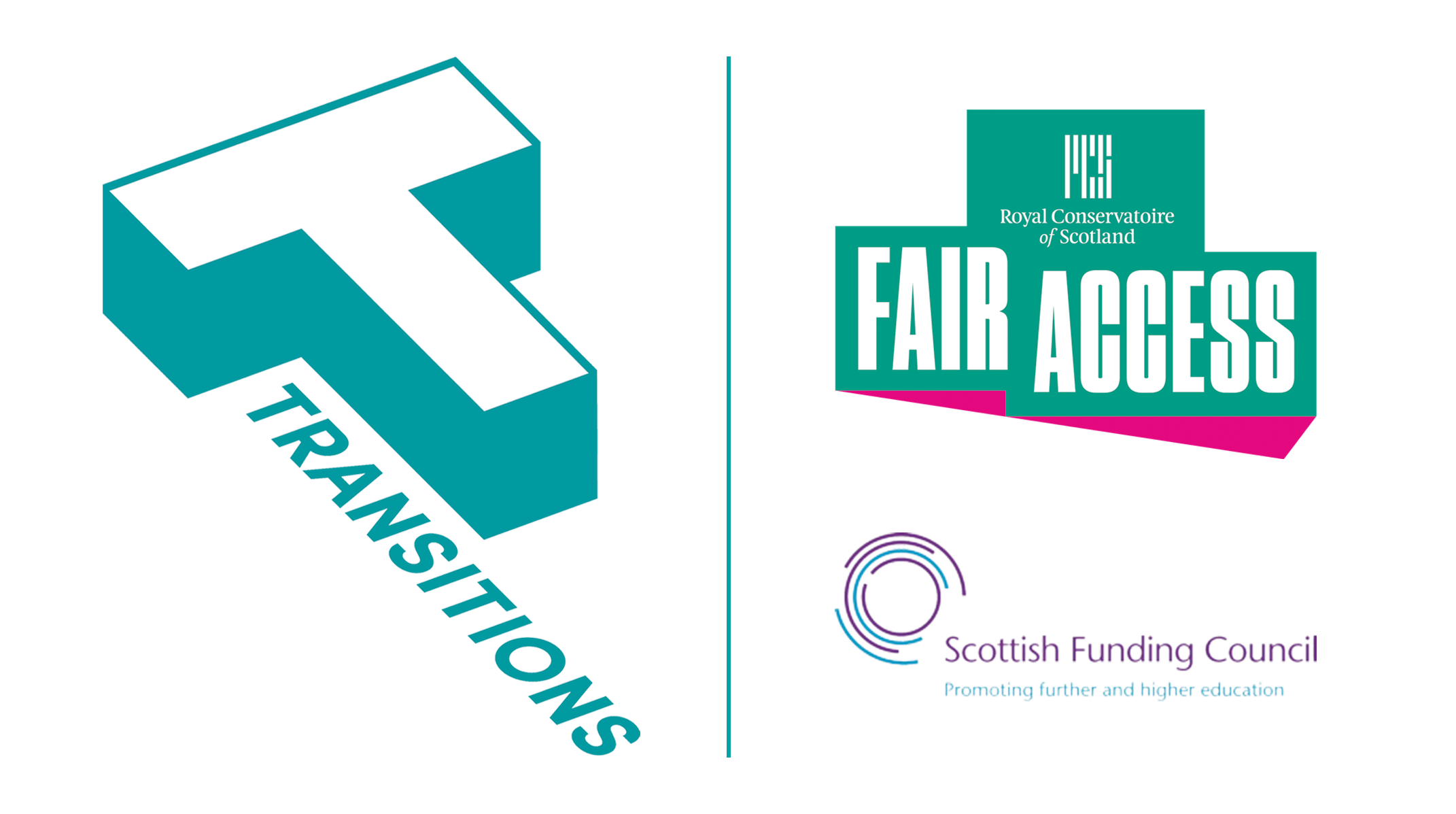ERIN THOMSON
Music | Bmus Composition

How did you find out about Transitions?
The first time I applied for the BMus course was during my 5th year in high school and I was 15 years old. I knew I wanted to compose but did not feel I was being provided enough support in school to develop my skills and I applied with the intention of receiving feedback for my application next year. I did not expect to then be told about Transitions and thus receive the support that I had been longing for.
When did you get involved with Transitions?
After my application for an undergraduate course was unsuccessful, I applied for Transitions and started studying in February 2016 and stayed in study until July 2017. I then started my undergraduate course that Autumn.
What was the most useful thing you learned about your artform and yourself?
I had fairly narrow knowledge when I started Transitions, especially for a composer. I was welcomed to the world of contemporary music and encouraged to listen and explore living composers. I was also encouraged to think about what music I would like to write, what instruments I wanted to write for and learn more about notation and working with performers. Transitions really expanded my horizons and gave me the encouragement to explore myself as a composer and artist and make use of the opportunities that were presented to me. To summarise, the most useful thing I learned about my art form and myself, was to be inspired by the world and people around me but also to explore myself and what I wanted to produce. Transitions made me really think about who I wanted to be as a composer, and I carried that forward into my undergraduate degree.
Why should someone think about joining Transitions?
Transitions is an opportunity unlike anything else I had ever come across. The support and encouragement will fuel your passion to pursue your art form and give you some insight into what it’s like to study. Further than this, it can provide you with the experience of what it’s like to have a career in the arts – it’s astounding just how many routes there are. It’s an opportunity to build friendships and meet people with the same interests as you, and even meet people who are different who can broaden your knowledge in other art forms or instruments. It’s an experience I will be forever thankful for that paved the way for me to get to where I am now.
What is one piece of advice would you give to any current student on Transitions?
If I had to give someone on the Transitions course just one piece of advice it would be to make the most of every minute. Take all opportunities presented to you and make your own opportunities, this is your experience and you can get as much out of it as you work for. Build your relationships with friends and tutors and learn from each other and motivate each other. A Lou Holtz quote is perfect for the point I’m trying to make – “Your talent determines what you can do. Your motivation determines how much you are willing to do. Your attitude determines how well you do it.”
If you could do it all over again, what would you do differently within your time with Transitions?
If I could go through my Transitions experience again, I would try to create more opportunities for myself. As a composer, it is so vital for us to collaborate and work with performers to build our repertoire and gain experience. In my time at Transitions I had been provided the opportunity to write for a professional ensemble which was a rewarding experience. However, I could have worked with the other Transitions students to create works for their orchestra or chamber ensembles or even a solo work. This is now standard practice for me to create opportunities and work one on one with performers, I’m sure it would have been just as invaluable for me then as it is now.
If you’d like to find out more about how to apply for Transitions, visit our pages on ‘How to Apply’ here.






